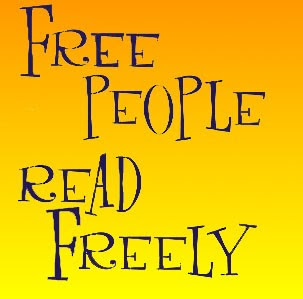Now, Vonnegut would take some perverse pleasure in being on this list, as a more current post demonstrates; he has a special connection, almost a camaraderie with librarians.
The general reason that most of these books are on this list is that school boards and library budgets are determined locally so whatever view is espoused at the local supermarket or church will be present in local government. So, there is the perfunctory choices on this list for “sexual deviancy” (Catcher in the Rye, Go Ask Alice), suicide (Ordinary People), sorcery, witchcraft (the Harry Potter series are on here as well.) All in the name of “protecting our children”, which in and of itself has some merit.
The real issue becomes what are we protecting them from. The evils of the world, the darkness in each of us, perversion? Who knows?
Honesty is honesty and any child being raised without that is being done a disservice. Beliefs are strengthened when confronted in the real world with real world variables, like resistance, differences, dichotomies. Protect your children, but by no means pretend like this doesn’t exist.
I am preaching to the choir, so I will cease and desist. But look at these books and tell me you haven’t enjoyed them? You haven’t cried when Lenny was shot, haven’t followed Holden through the belly of New York, haven’t snickered a little about Vonnegut’s wry and dark humor in the face of utter destruction?
C’mon? Shell Silverstein? Not the most subversive of fellows.
I Know Why the Caged Bird Sings by Maya Angelou
The Adventures of Huckleberry Finn by Mark Twain
Of Mice and Men by John Steinbeck
The Catcher in the Rye by J.D. Salinger
The Color Purple by Alice Walker
A Wrinkle in Time by Madeleine L’Engle
Go Ask Alice by Anonymous
The Witches by Roald Dahl
The Handmaid’s Tale by Margaret Atwood
The Bluest Eye by Toni Morrison
To Kill a Mockingbird by Harper Lee
Beloved by Toni Morrison
The Outsiders by S.E. Hinton
Flowers for Algernon by Daniel Keyes
A Light in the Attic by Shel Silverstein
Brave New World by Aldous Huxley
Ordinary People by Judith Guest
The House of Spirits by Isabel Allende
Slaughterhouse-Five by Kurt Vonnegut
Lord of the Flies by William Golding
Native Son by Richard Wright
The Adventures of Tom Sawyer by Mark Twain
Song of Solomon by Toni Morrison
